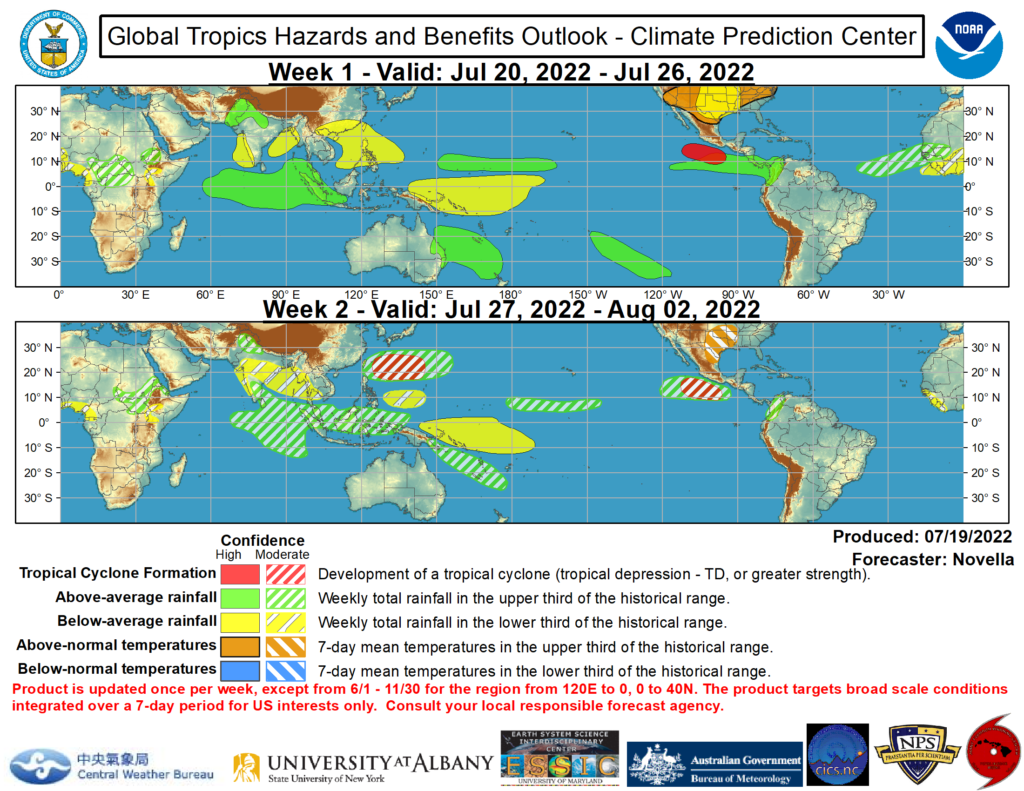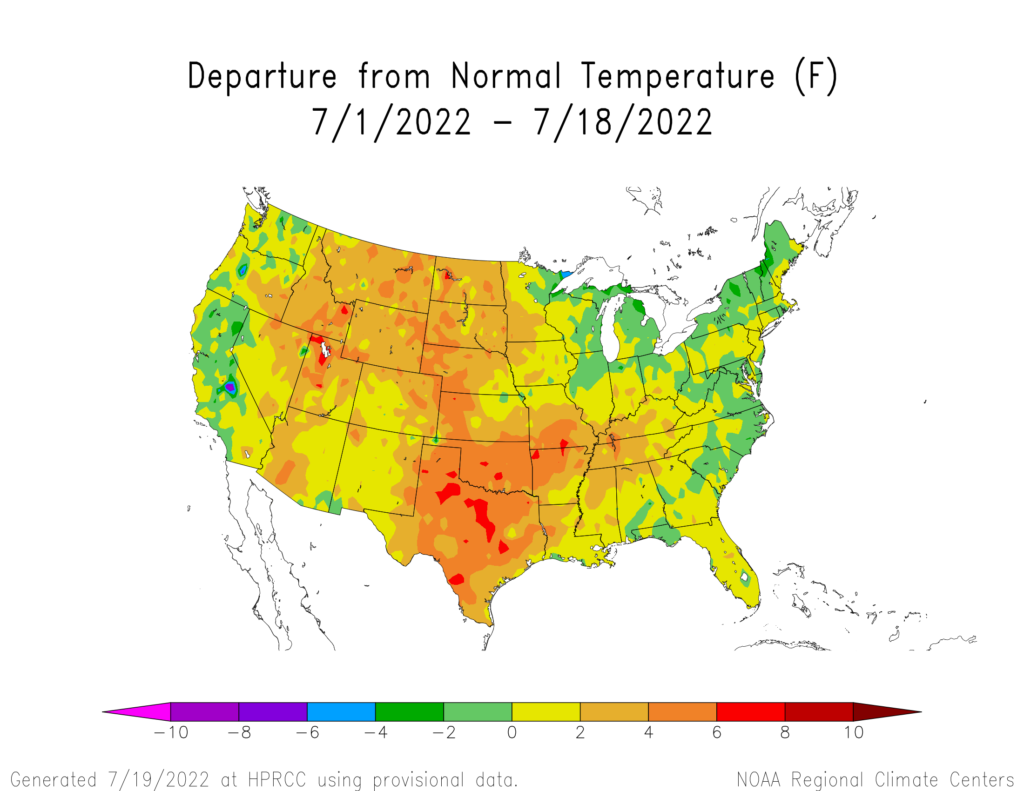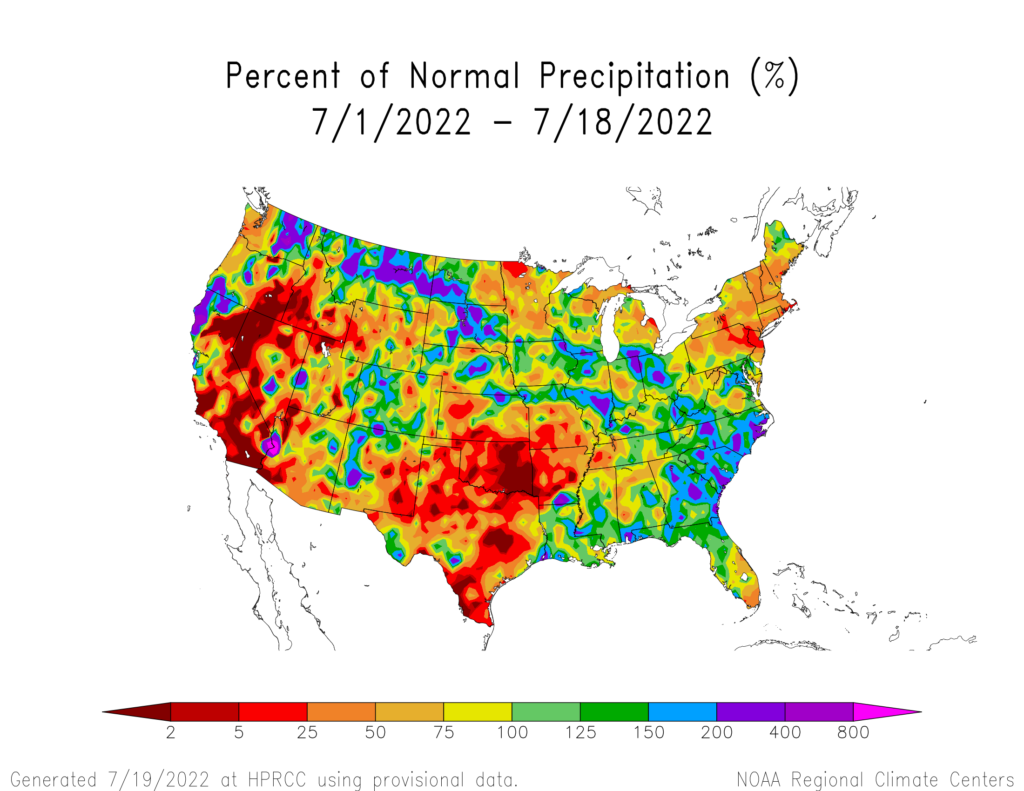Here is what we are paying attention to this evening and the next 48 hours from this evening’s NWS Forecast.
...Record breaking heat wave continues from Mid-South to Northeast this weekend.... ...Severe thunderstorms capable of producing flash flooding to spread from Midwest today and tomorrow to Mid-Atlantic/Northeast on Monday... ...Monsoonal moisture to gradually bring locally heavy rains and isolated flash flooding across portions of the Southwest into the Southern Rockies through Monday...
Continuation of the NWS Short Range Forecast (It is updated twice a day and these updates can be found here.
Upper-level ridging across the mid-southern tier, and shortwave energy pulsating across the northern tier states will drive most of the sensible weather threats over the next couple of days. A low pressure system and attendant cold front rotating across the Upper Mississippi Valley will bring thunderstorms and heavy rain leading to flash flooding from southern Minnesota to northern Indiana tonight where a Moderate Risk (level 3/4) of excessive rainfall leading to flash flooding is in effect. Some thunderstorms may turn severe across the Central Plains, Middle/Upper Mississippi Valley and Midwest. An Enhanced Risk (level 3/5) of severe weather was issued for parts of southern Minnesota to western Michigan through tonight where damaging thunderstorm gusts, tornadoes and very large hail will be possible. Severe weather and flash flooding is expected to continue to impact these areas tomorrow as the cold front sweeps through the Midwest. Elsewhere, low temperature records may be tied or broken across parts of the mid-section and Northeast tonight as lows struggle to drop below the 70s and 80s. As the upper ridge settles over the East coast, temperatures will soar. Widespread high temperature records are forecast to be tied or broken from the Mid-Atlantic up into New England tomorrow with many places expected to hit the upper 90s and heat indices to eclipse 100 degrees. Heat advisories are in effect for much of these ares and Excessive Heat Warnings are in effect for the Philadelphia, Trenton and Wilmington metro areas as widespread nighttime lows are expected to be broken tomorrow. The fire hose that is the Southwestern Monsoon tap is expected to open up tomorrow and produce scattered to isolated thunderstorms and heavy rains with localized flash flooding across portions the Four corners region. Slight Risks of flash flooding are in effect for parts of southern Arizona and central Colorado tomorrow and just southern Arizona on Monday. Showers and thunderstorms arrive over the Mid-Atlantic, Central Appalachians and Northeast on Monday where flash flooding and severe weather are possible. Slight Risks of excessive rainfall and severe thunderstorms are in effect for parts of these areas as a result.
Maps that relate the forecast to geography can be found by clicking Here for Day 1 and Here for Day 2.
Here is a 60-hour animated forecast map that shows how the short-term forecast is expected to play out.
If it needs to be updated click here.
HAZARDS OUTLOOKS
Click here for the latest complete Day 3 -7 Hazards forecast which updates only on weekdays. Once a week probably Monday or Tuesday I will update the images. I provided the link for reads to get daily updates on weekdays. Use your own judgment to decide if you need to update these images.
Worldwide Tropical Forecast
(This graphic updates on Tuesdays) If it has not been updated, you can get the update by clicking here
Detailed Maps and Reports for the Western Atlantic and the Pacific Oceans
Below are three maps that summarize the situation for the Atlantic, Eastern and Central Pacific. Additional information can be accessed by clicking HERE
First the Atlantic
Click to view the forecast map and have access to additional information https://www.nhc.noaa.gov/gtwo.php?basin=atlc&fdays=5
Then Eastern Pacific
Click to view the forecast map and have access to additional information https://www.nhc.noaa.gov/gtwo.php?basin=epac&fdays=5
Then Central Pacific
Click to view the forecast map and have access to additional information https://www.nhc.noaa.gov/gtwo.php?basin=cpac&fdays=5
And the Western Pacific
Click to view the forecast map and have access to additional information https://www.metoc.navy.mil/jtwc/jtwc.html
Some Intermediate-Term Outlooks
Links to “Outlook” maps and discussions for three time periods. Days 6 – 10, Days 8 – 14, and Weeks 3 and 4. An outlook differs from a forecast based on how NOAA uses these terms in that an “outlook” presents information from deviation from normal and the likelihood of these deviations.
You have to click on the links because they do not update automatically and I do not want to have stale images in the article. But it is not difficult to click on a link and you get a large image plus a discussion. On Fridays in a separate article, we will show the images and provide a link in this article that article. But remember what you will see is the images as of Friday. But here you can get the current images simply by clicking on them. Then hit the return arrow at the upper left of your screen to return to the article. You will not find this information easily anywhere else.
Right now you can find these maps here (We show them every Friday there but you can click above and find them).
Month to Date Information
(These images do not auto-update – I update them from time to time, but the links are there so just click on them)
Temperature
Precipitation
Month to date Temperature can be found at https://hprcc.unl.edu/products/maps/acis/MonthTDeptUS.png
Month to date Precipitation can be found at https://hprcc.unl.e du/products/maps/acis/MonthPNormUS.png







